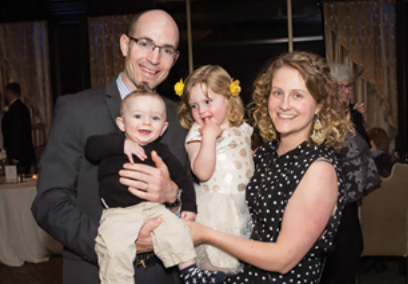Josiane Broussard, PhD
Ludeman Center Feb 1, 2018 Dr. Broussard is an Assistant Professor in the Department of Integrative Physiology at the University of Colorado-Boulder. She received the Ludeman Family seed grant from the Ludeman Family Center for Women’s Health Research in 2017.
Dr. Broussard is an Assistant Professor in the Department of Integrative Physiology at the University of Colorado-Boulder. She received the Ludeman Family seed grant from the Ludeman Family Center for Women’s Health Research in 2017.Your research focuses on a very interesting topic: sleep. Can you describe the inspiration that led you to pursue this work?
The “a-ha” moment, the initial inspiration, came in graduate school. I was working on my PhD in a sleep lab, but all my coursework focused on molecular biology. I began to wonder—sort of wistfully—whether I would ever be able to look at human tissue and its relationship to a specific behavior like sleep. Luckily, I had a very supportive thesis committee. They all said, “Well, why can’t you?”
How has mentoring factored into your development as a researcher?
I feel extremely fortunate, thus far in my career, to have received amazing mentorship and inspiration from strong women scientists who have shown me that it’s possible to balance family life with academia. My first boss at Harvard had twins right before she received her first R01 award. She commuted from New Hampshire to Boston during those years and still managed to make it work. She would take days off to go skiing and call me from the gondola with an idea for work; in other words, she not only made a balanced life possible, she made it fun. My PhD mentors all had kids, too, but they nonetheless enjoyed the ebb and flow of science life, which can be quite intense and round-the-clock (especially for a sleep researcher). During my post-doc, I did a project that required 38-hour experiments, and I slept in the lab a lot. But there are quiet weeks, too, and I like the variety. I’m hoping to pass along the same attitude to my mentees. I want to teach them to appreciate the perks of science and know that, while sometimes you have to sleep in the lab, it’s possible to have a life outside of work, too.
What are your goals for the future of your research?
I’m really excited about my current work because I feel it’s in perfect alignment with all of my previous training and research interests. I’m eager to study how the disruption of sleep and/or circadian rhythms impacts individual tissues and individual cells. I want to follow this line of research to understand why every cell fundamentally needs sleep to stay healthy.
Tags:
CWHR Researcher Spotlight